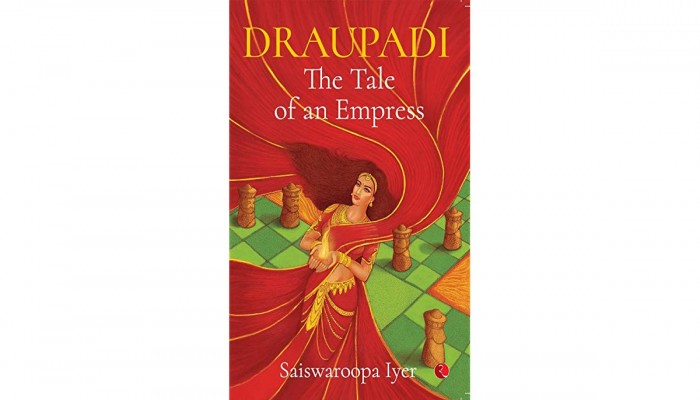Book Review: Draupadi - A Tale of an Empress
- In Book Reviews
- 08:59 AM, Feb 24, 2020
- Shashank Davanagere
Krishna is the Godhead. He can do no wrong. Nor can be hurt by anything or anyone. At least that is what I always imagined when growing up. That Krishna could get hurt and bleed like the rest of us is something that I never imagined until I started reading books by Sai Swaroopa. She showed it was possible in her debut novel Abhaya and followed it up with aplomb in Mauri. Then came Draupadi - The Tale of an Empress. What a magnificent novel it is. Just the beginning of the novel takes us back to the age when Janamejaya was ruling, a couple of generations have passed since the Mahabharata war, and then takes us back to the zenith of the Kuru Dynasty.
I remember someone famous saying that the last original story in India is that of Mahabharata and everything since then has either been a good copy or a bad copy of the innumerable stories openly hidden within that Epic. After reading Draupadi it does feel that the Mahabharata is indeed a treasure trove and a million such novels can be written without losing any originality. Draupadi is the Mahabharata - particularly the Pandava - Kaurava conflict [rather Dhartarashtars, or sons of Dhritarashtra, given Pandavas also belong to the Kuru Dynasty] - written from her point of view.
Swaroopa's Draupadi is refreshingly different from every other version that I am accustomed to reading. Her Draupadi is not arrogant or even feels like a Princess. She looks and feels like one of us… just a little more ambitious than most of us. It does feel like a mixture of ambition and destiny that drives Swaroopa’s Draupadi to take the decisions she does. Couple that with the fine guiding mind of the great strategist Krishna, and we have a war on hand!
I genuinely mean that. Though unlike most wars this was not fought for land, women or wealth. It was fought since the alternative was worse. It was fought since the country deserves better. It was fought to protect the Kuru Dynasty from degenerating further. Over all, it was fought to establish the rule of Dharma over the country. That is one very fundamental principle driving Swaroopa’s Draupadi in the novel.
In all of Swaroopa’s novels there are no pure demons. Just like there are no pure heroes. There are no one sided battles. There is no just black or white rendering of history. Most of her stories work in the gray area just as the real world we live in. That adds so many dimensions to these stories and makes them genuinely relatable in many ways. For instance, if there is any one person who can be considered the root cause of the Mahabharata war it is Dhritarashtra, but even his actions are explained by Swaroopa in a way that make them seem very logical!
There are very few books that do not make Krishna as the Poorna-avatara. By not making Him a Poorna-avatara, we can interpret Krishna’s actions (& words) in ways that make it seemingly different than otherwise. It makes Him look even bigger than life, something which I thought was not genuinely possible. It makes His strategic decisions even more awesome. While the book “Krishna Rajya” by Jaganniwas Iyer and Prafull Goradia explored Krishna’s strategy in the aspect of war and governance, Draupadi explores it from the aspect of establishment of Dharma.
Swaroopa’s Draupadi can be seen as the only person who truly understands Krishna’s singular focus of establishment of Dharma and happily aids Him on this quest. How she does what she does, well, please do pick up a copy and read it. It is peppered with Swaroopa’s understanding of the world and her Dharma tidbits though delivered via Krishna or Draupadi. After Draupadi, it does look like Sai Swaroopa is truly Krishna sakhi.







Comments